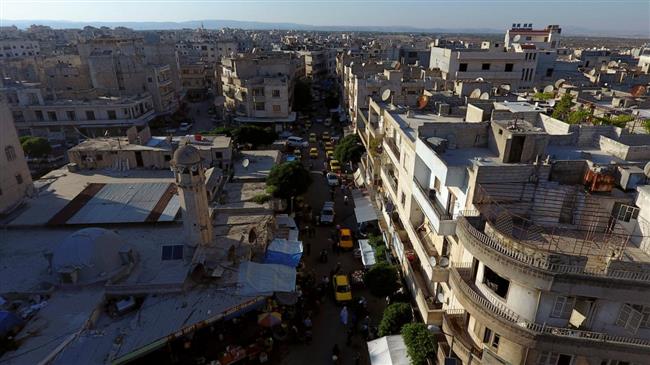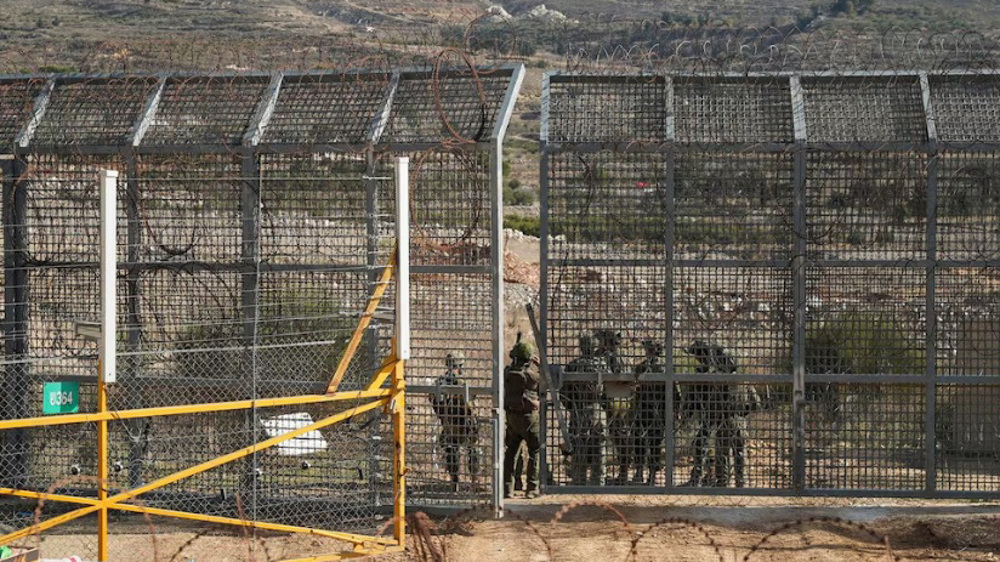Idlib will be soon under govt. control: Syrian PM
Syrian prime minister says the northwestern province of Idlib, the last major stronghold of the terrorists in the Arab country, will be soon under government control, pledging to win any possible war there.
"Idlib will soon be restored to the nation," Imad Khamis said on Thursday as a large-scale liberation operation against remaining terrorists in the province draws closer.
“Syria has prevailed and will win in any coming war,” Khamis said.
With the help of Iran, Russia and Lebanon’s Hezbollah resistance movement, the Syrian army is preparing for the Idlib operation, a strategically-important region which shares a border with Turkey and is also close to the coastal Latakia Province.
Idlib also hosts Turkish-backed militants fighting against the government of Syrian President Bashar al-Assad. Turkey, whose army has a string of observation posts around the edge of the militant area, has warned against such an offensive.

Syria is facing the threat of being hit by the US and its allies if a chemical attack takes place in the province.
On Thursday, Jim Jeffrey, the new US adviser for Syria, claimed that there was “lots of evidence” that chemical weapons are being prepared by Syrian government forces in the militant-held province.
“There is lots of evidence that chemical weapons are being prepared, ” claimed Jeffrey, who was named on August 17 as Secretary of State Mike Pompeo’s special adviser on Syria overseeing talks on a political transition in that country.
He said Washington views the Syrian government military offensive on Idlib as an escalation of the Syrian conflict.
The US has accused the Syrian government of attacking civilians with chemicals in previous operations, including in Douma near Damascus and in Khan Sheikhun, in Idlib. The Syrian authorities have strongly denied any involvement in either cases, saying the attacks had been carried out by militants to slow Syria’s progress in the fight against terror.
Syria and its allies, including Russia, believe a similar scenario could be staged in Idlib. Moscow has already submitted evidence to the United Nations and the Organization for the Prohibition of Chemical Weapons (OPCW) showing that the terrorists in Idlib are preparing to set up another false flag chemical attack to frame Damascus.
Damascus and Moscow have warned that the US, along with Britain and France, is gearing up for a new military attack against Syria as the army prepares for the liberation of Idlib.
The US has reportedly drawn up a preliminary list of facilities in Syria that could be targeted in case of a false flag chemical attack in Idlib.
Speaking at a Thursday United Nations Security Council meeting about the use of chemical weapons in Syria’s years-long war against foreign-backed terrorists, Russia's UN envoy Vasily Nebenzya said Washington and its military allies, the UK and France, had to reveal where they were going to attack.
On April 14, the US, Britain and France launched a coordinated missile strike against sites and research facilities near Damascus and Homs with the purported goal of paralyzing the Syrian government’s capability to produce chemicals.
The strike came one week after an alleged gas attack hit the Damascus suburb town of Douma, just as the Syrian army was about to win the battle against the militants there.
Syria and Russia have also announced that they have obtained evidence revealing a yet another plot by Takfiri terrorists to carry out a chemical attack in Idlib - an attack that they say would be blamed on Damascus with the aim of justifying an ensuing Western aggression.
Western states blamed the Syrian government for the incident, but Damascus firmly rejected the accusation.

Speaking at a UN Security Council meeting on Thursday, Syria’s Ambassador to the UN Bashar Jaafari blasted the US, France and the UK for supporting terrorists operating in the Arab country, saying that there were no chemical weapons in Syria.
The Syrian envoy said that there were no cases of chemical weapons use in Syria since 2014, when the OPCW was established.
He slammed certain Western countries that blame Syria for the alleged chemical attacks for enabling Israel to possess nuclear and chemical weapons.
Jaafari said the same governments, that he said included some permanent members of the UN Security Council, were failing to do their responsibilities toward disbanding chemical weapons properly.
The same governments, he said, are the ones that protect and conceal the nuclear and chemical weapons of Israel.
The presidents of Iran, Russia and Turkey, the countries acting as the guarantors of the ceasefire in Syria, are set to meet in Tehran on Friday for a third summit seeking an end to the Syrian crisis.
VIDEO | Yemeni forces repel US-British attack, down F-18 Jet
Iran’s capabilities vast; enemy’s ‘maximum pressure’ policies all failed miserably: Senior official
Iran’s economy grew 2.7% y/y in Sep quarter: CBI
VIDEO | Freelancers in Gaza strive to stay online amid genocide
Mikati demands Israel's withdrawal from south Lebanon
Yemeni army strikes Israeli military sites with drones
‘Clock ticking’: UNRWA slams unjustifiable killing of children in Gaza
BP to be sued in Britain for supplying oil to Israel











 This makes it easy to access the Press TV website
This makes it easy to access the Press TV website